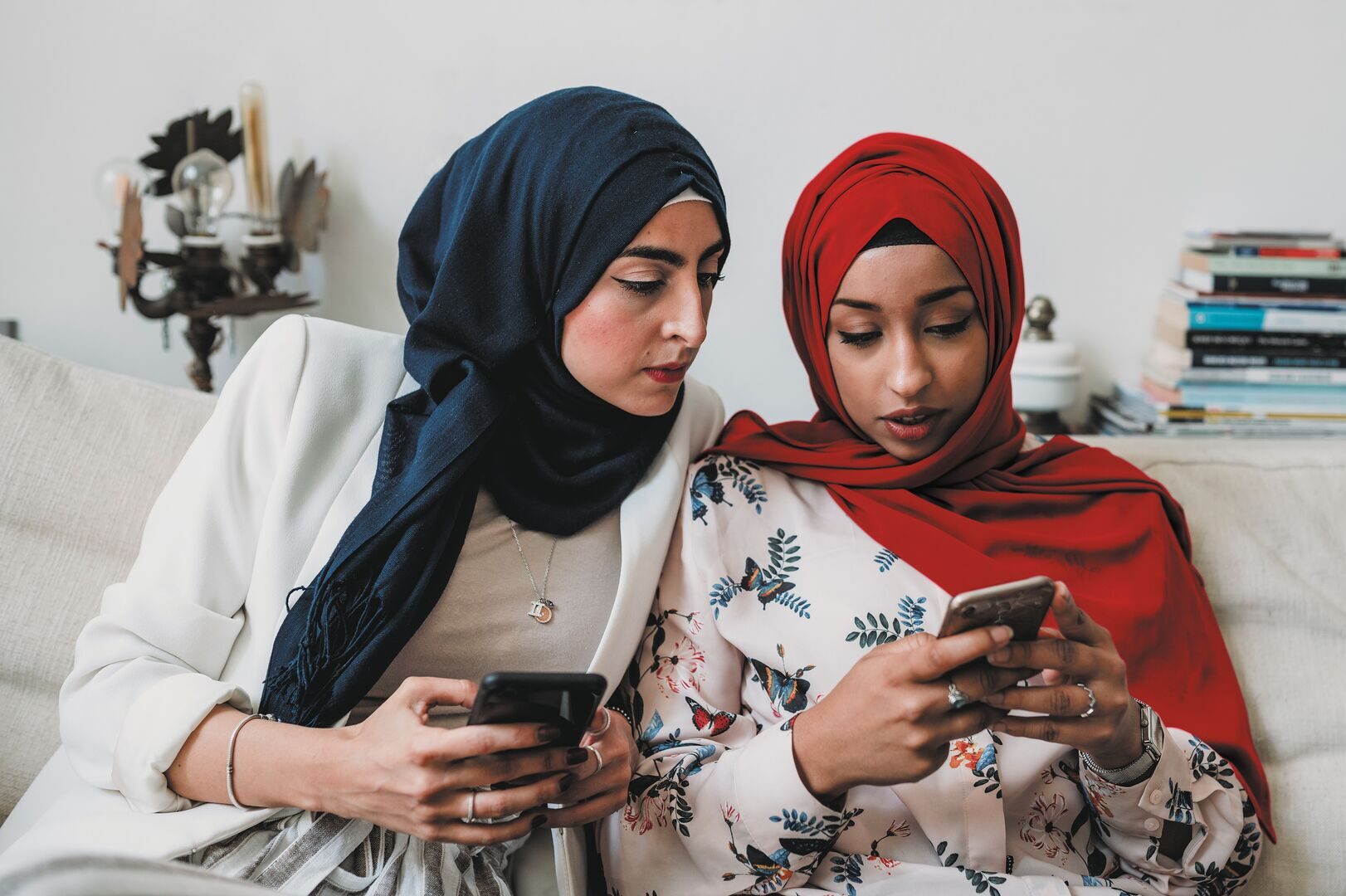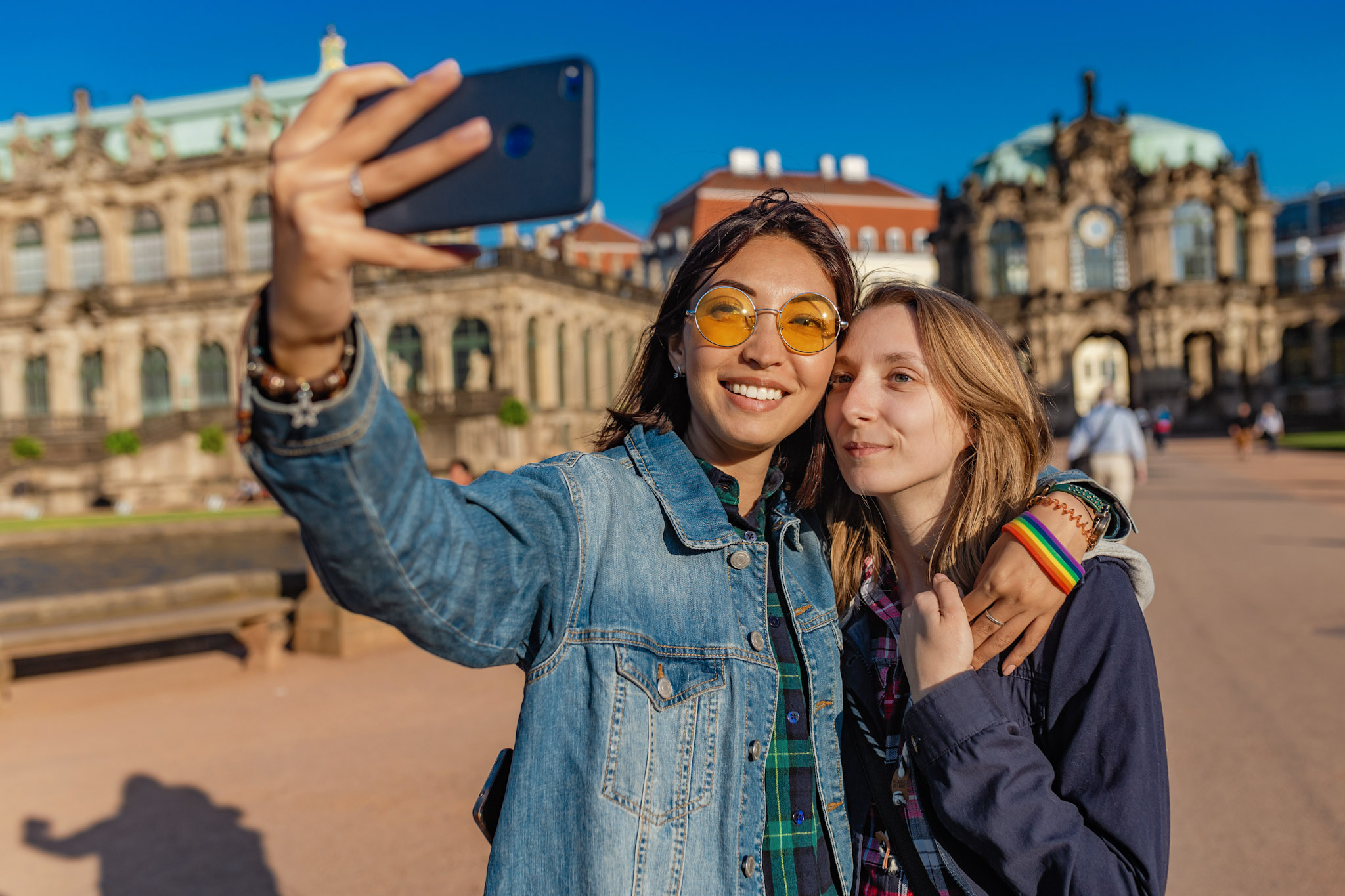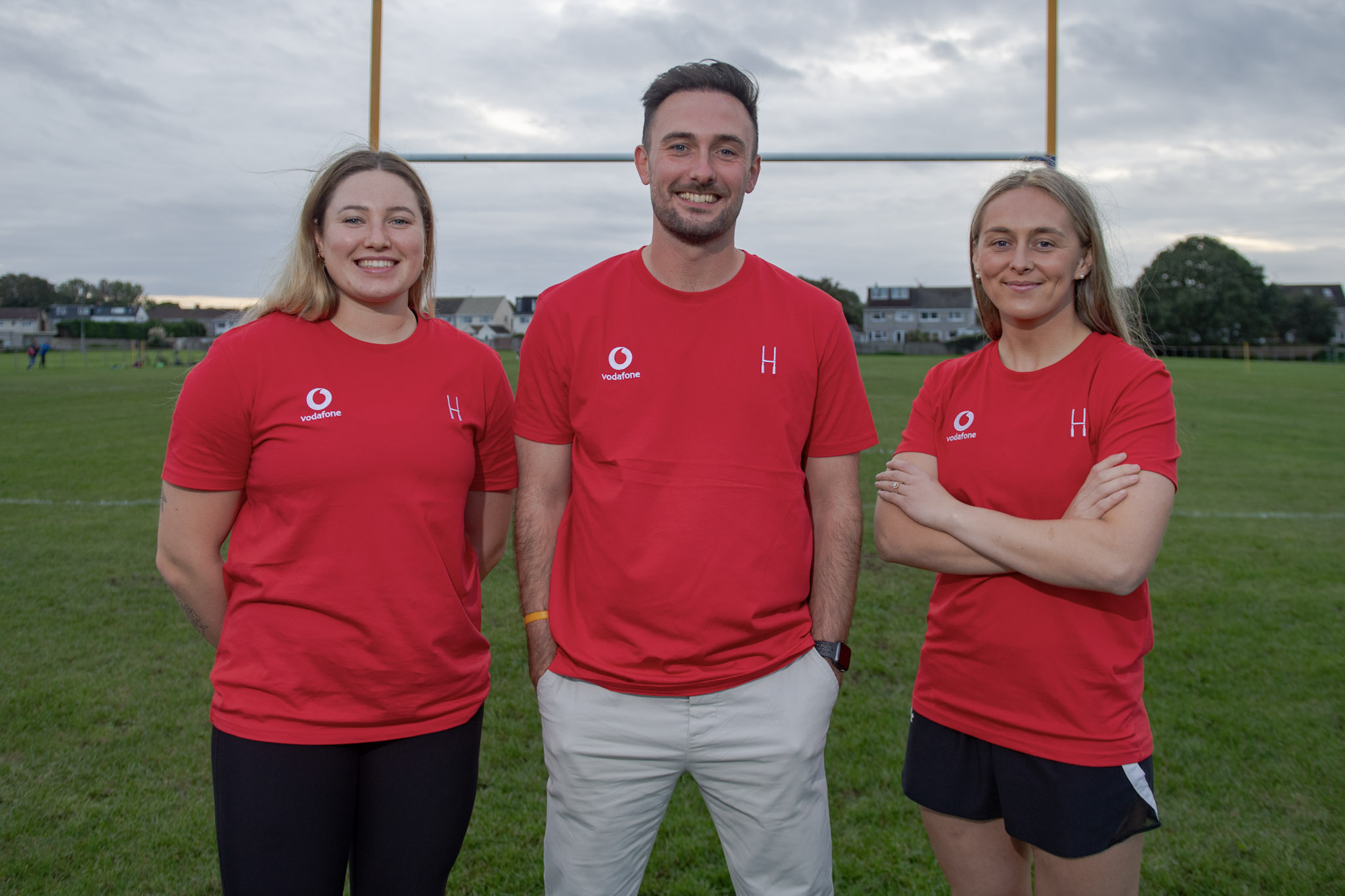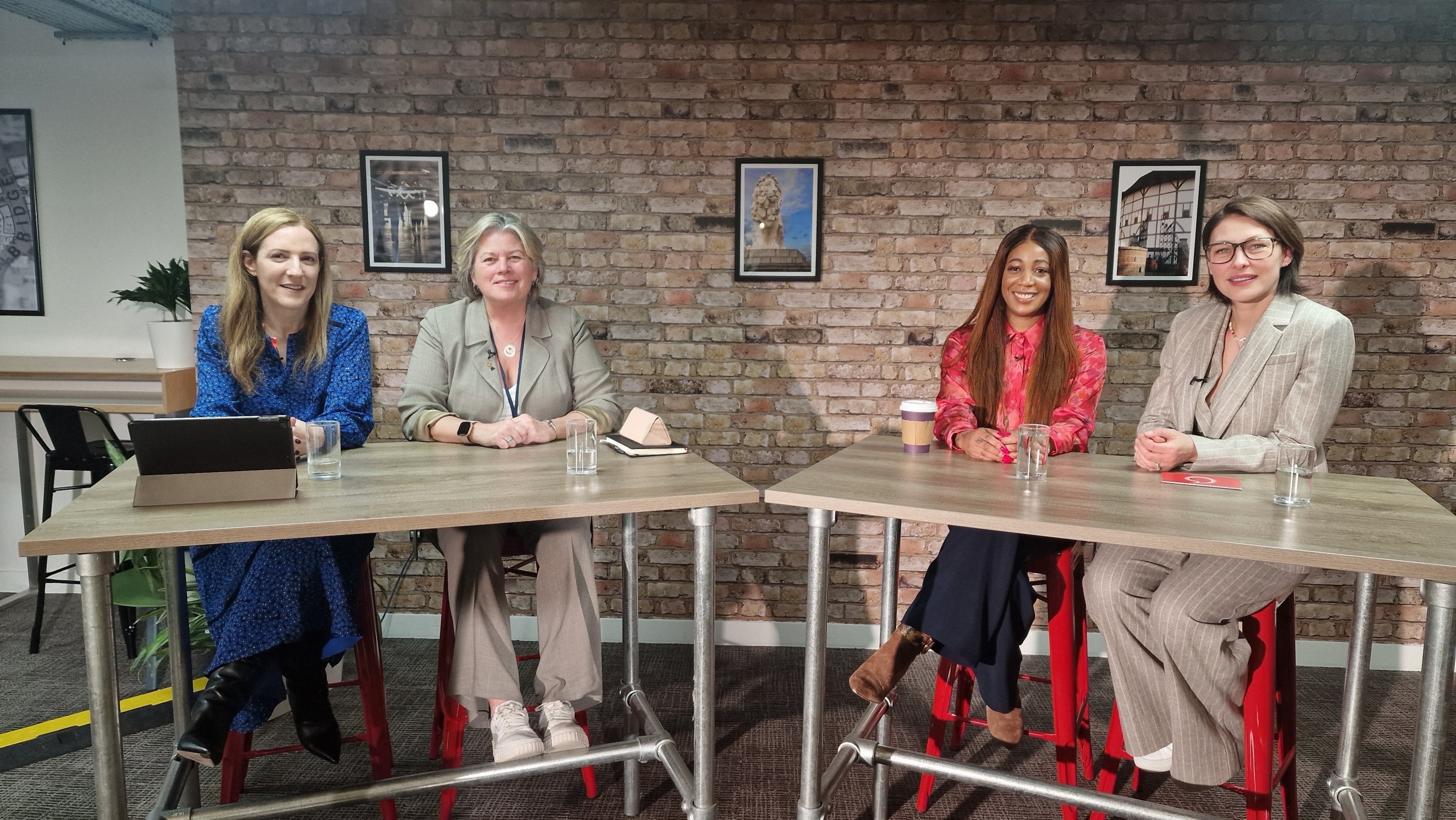To mark International Women’s Week, we show how connectivity is helping narrow the gender gap. But huge inequalities remain.
If you had to guess what percentage of the science, technology, engineering and maths [STEM] workforce is made up of women, what number would you choose? Fifty? Forty? Afraid not.
Recent data puts the figure at just 27%. And the gender gap is often widest in the highest-paid roles in the fastest-expanding fields, like computer science and engineering.
“In June 2022, only 2.69% of the UK’s core STEM workforce were women,” explains Dr Anne-Marie Imafidon MBE, CEO of Stemettes. She points out that in the UK “women make up half of the wider population [and are] impacted by the STEM sector.
“This is particularly problematic, as not having a diverse set of people who reflect the society in which the outputs of STEM are realised, means an absence of perspective and experience in the decision making, prioritisation and implementation processes.
“We’re leaving an entire gender behind in a field that continues to shape all aspects of life as we know it – and so the STEM sector is creating more problems than it is solving.”
Vodafone: One of the Times Top 50 Employers for Women 2022
This award recognises the company's many initiatives at deepening gender equality as Clare Corkish, Vodafone's UK Director of Human Resources explains.
But it is not just involvement in the digital industries that’s unequal. Even access to the internet is skewed.
Around the world, men are 21% more likely to be online than women, according to the World Bank. In low-income countries, that figure rises to a worrying 52%.
This is really important because mobile connectivity in particular has a vital role to play in empowering women, improving their health and boosting their prosperity.
Online, women can access vaccinations and maternal healthcare. Smallholder women farmers can get business and agricultural information. That’s why Vodafone has pledged to connect an additional 20 million women living in Africa and Turkey to mobile by 2025. And the company isn’t stopping there.
Vodacom’s Mum & Baby service is a free-to-use mobile health service which gives customers maternal, neonatal and child health information, with no data charges. It has already helped more than 1.9 million parents and caregivers in South Africa improve their children’s health since its launch in 2017. This year, the service expanded to the Democratic Republic of the Congo.
More connectivity, more opportunity
Vodafone is helping women to work, too.
Globally, rural women have lower levels of smartphone ownership than rural men or urban women. In Nigeria, for instance, mobile internet is used by 67% of urban men and 46% of urban women. Move to a rural setting, and those figures fall to 41% of men, and just 24% of women.
Nicki Lyons on the importance of International Women's Day
Vodafone's UK Chief Corporate Affairs & Sustainability Officer, Nicki Lyons, talks about what International Women's Day means to her.
This matters. Lack of mobile internet connectivity means rural women cannot keep up with studies and work, cutting off a vital way to help lift them and their families out of poverty and blocking a crucial route to reaching their full potential.
Currently in Sub-Saharan Africa, a quarter of the population still live outside mobile broadband coverage, compared to 7% globally. Over the next five years, Vodafone is investing US$190m (£157m) to increase 4G population coverage to an additional 80 million people in the region, to help drive up digital inclusion for the hardest-to-connect communities.
At 54%, Vodafone’s 4G population coverage is already higher than the African average of 49%. But as part of the ITU Partner2Connect digital coalition, the company has committed to increasing this to around 85% across six Sub-Saharan African countries.
Meanwhile, in the EU, where a quarter of the population lives in rural areas, new approaches and a blend of technologies will help Vodafone deliver universal mobile coverage – critical infrastructure that will create new jobs, improve agricultural productivity, and enhance local public services.
Fairer finance
But the digital gender gap can never be fully closed until access to banking is fairer, too. The World Economic Forum estimates that women make up 55% of the world’s 1.7 billion people who still have no access to banking facilities. This often means they are without savings or checking accounts, insurance, credit facilities or loans.
Mobile banking and digital financial technologies offer the chance to reach these communities. But there is a gender gap here, too.
World Menopause Day: Vodafone shares employee toolkit to support women
Working from home and a toolkit for educating line managers all help support women as they go through the change.
In 2017, one study found that across low- and middle-income economies, 40% of men had sent digital payments in the past year. Among women, the figure was just 32%.
To address this problem, in 2007 Vodafone, together with Safaricom, developed Africa’s first mobile money transfer service, M-Pesa, providing financial services to the millions of people who have a mobile phone but limited access to a bank account.
The goal was to connect 50 million families to mobile financial services by 2026. As of the end of March 2022, 52.4 million customers were using M-Pesa, so Vodafone upped its target and now aims to connect 75 million customers to mobile money and financial inclusion services by 2026.
These goals aren’t really about numbers.
Behind each figure is the ambition to dismantle inequalities and to build up women’s access to life-enhancing services. Only then can half of the world’s population achieve its true potential, on an equal footing.
Technology and connectivity can help achieve this ambition.
Stay up-to-date with the latest news from Vodafone by following us on Twitter and signing up for News Centre website notifications.





![Neurodiversity illustration[Adobe Stock]](https://www.vodafone.co.uk/newscentre/app/uploads/2024/03/Neurodiversity-illustrationAdobe-Stock.jpg)

![Nicki-Lead_image[OPTIMISED]](https://www.vodafone.co.uk/newscentre/app/uploads/2023/10/Nicki-Lead_imageOPTIMISED.jpg)